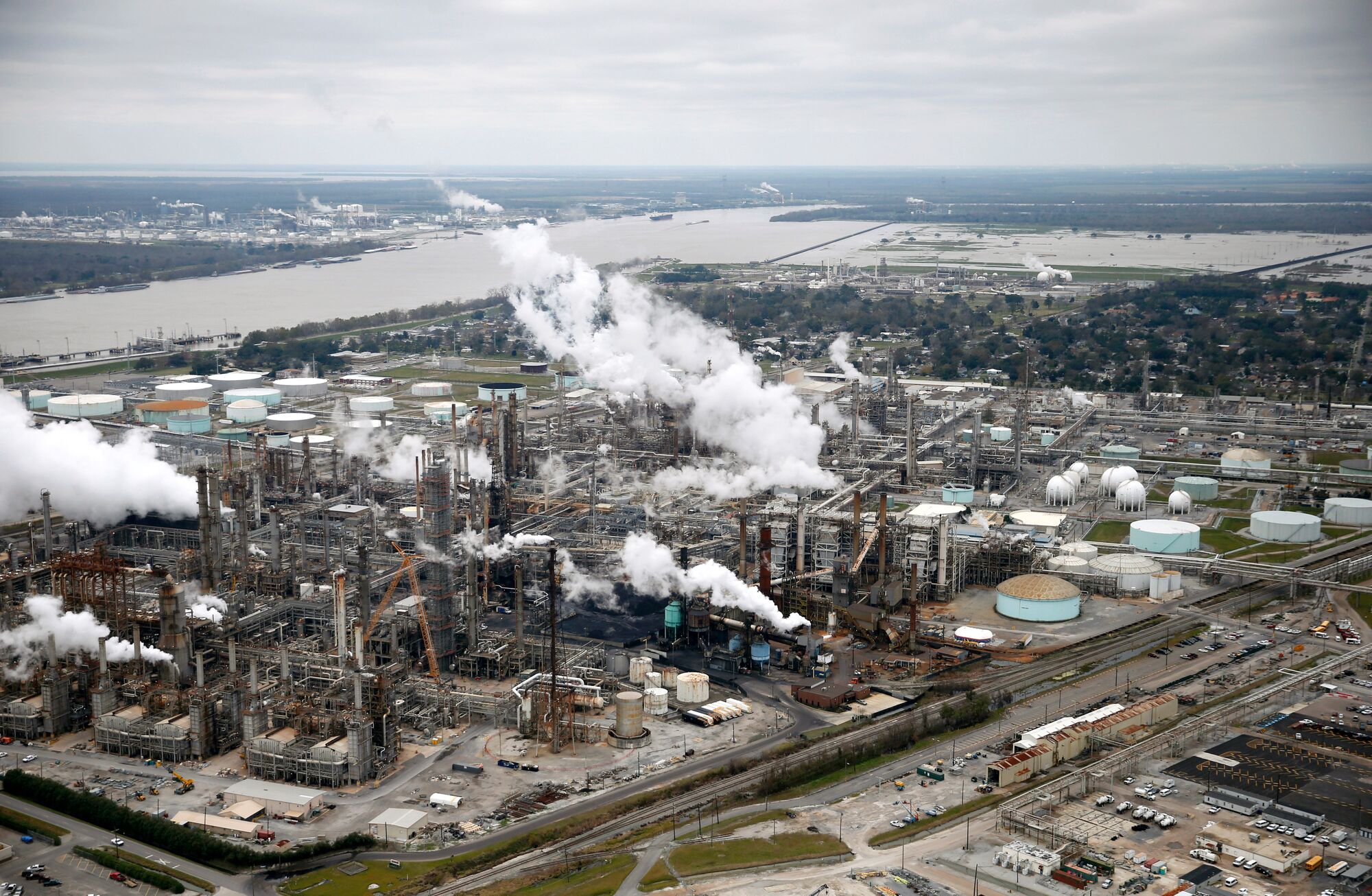EPA Closes Emissions Loopholes Abused by Refineries and Chemical Plants
The rule removes loopholes companies used to avoid reporting harmful toxic emissions during force majeure events
Contact
On March 15, the Environmental Protection Agency signed a rule improving the air toxics standards for petroleum refineries and three significant petrochemical sectors. One of the most consequential revisions is the EPA’s decision to remove the so-called “force majeure” loophole, which allows chemical plants and petroleum refineries to release unlimited amounts of toxic emissions without liability and recourse for communities.
Before the EPA’s correct decision to remove the force majeure provision, it was the latest loophole to malfunctions and other events that the EPA carved out for the polluters. Under the force majeure loophole, refineries and chemical plants could emit unlimited air toxins during “force majeure” events, like natural disasters. Courts have deemed loopholes such as these unlawful, as the Clean Air Act requires that emission standards apply continuously.
The EPA’s rule removes force majeure loopholes by enforcing stricter standards for pressure relief devices, emergency flaring, and storage vessel degassing in the petroleum and chemical sectors. This reduces emissions of hazardous air pollutants (HAPs) and other pollutants, aiming to curb air pollution and bolster public health and environmental protection.
“This rule eliminates some loopholes that allow facilities to emit tons of harmful air pollution without consequence,” said Earthjustice Attorney Kathleen Riley. “But other exemptions still linger, and EPA must address them. It’s long past time to stop providing these facilities with loopholes and free passes for violating air toxic rules.”
By eliminating exemptions for emissions of hazardous and toxic pollutants, the new EPA regulations will lower the incidences of respiratory illnesses, cancer, and other health conditions associated with pollution exposure. Additionally, cleaner air and a healthier environment support ecosystem services and biodiversity.

Additional Resources
About Earthjustice
Earthjustice is the premier nonprofit environmental law organization. We wield the power of law and the strength of partnership to protect people's health, to preserve magnificent places and wildlife, to advance clean energy, and to combat climate change. We are here because the earth needs a good lawyer.